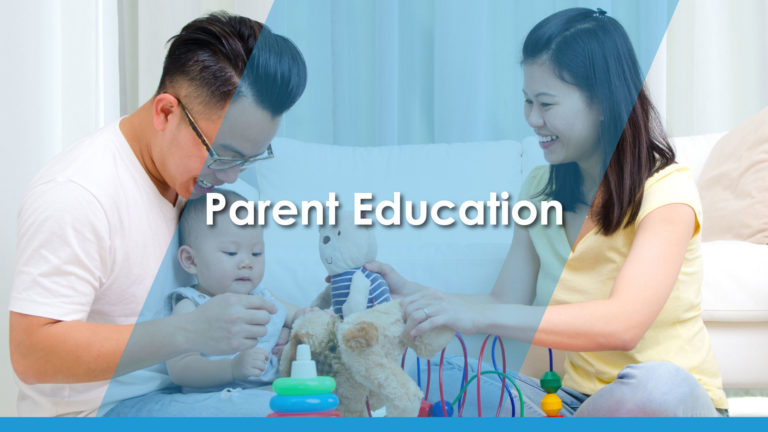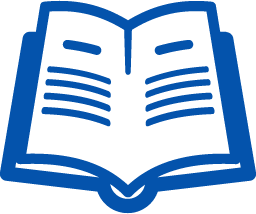ASD SINGAPORE:
RESOURCES FOR AUTISM PARENTS IN SG
Autism SG - What is the prevalence rate of ASD in the world and in Singapore?



- 1 in 68 children has been identified with Autism Spectrum Disorder (ASD) in the United States, 30 percent higher than previous estimates reported in 2012 of 1 in 88 children (Center for Diseases Prevention and Control, CDC 2014)
- In Singapore, due to the lack of statistical studies to establish the prevalence rate locally, an estimate figure of 1% of the population is diagnosed with ASD.
- 1,100,000 cases of autism in China; 650,000 in the UK; 500,000 in the Philippines; and 180,000 in Thailand (the World Health Organization, WHO, 2009)
- 49 children in every 10,000 is diagnosed with the disorder in Hong Kong (epidemiological study by V. Wong & S. Hui (2007) of The University of Hong Kong)
- 5 times more common among boys (1 in 42) than among girls (1 in 189). (Centers for Disease Control and Prevention, CDC, ASD)
- Studies in Asia, Europe, and North America have identified individuals with ASD with an average prevalence of about 1%. A study in South Korea reported a prevalence of 2.6%. (Centers for Disease Control and Prevention, CDC, ASD)
- Approximately 67 million people worldwide are affected by autism.
ASD Assessment SG - Where to get an Autism Assessment in Singapore?

What is a Developmental & Behavioral Pediatrician?
Developmental and Behavioral Paediatrician offers multidisciplinary service committed to providing holistic care for children with developmental, learning and behavioural difficulties. Developmental and Behavioral Paediatrician assess and manage children from birth to 7 years old with a range of learning, behavioural and developmental needs. These include: Autism Spectrum Disorder (ASD), Attention Deficit Hyperactivity Disorder – ADHD (Children), Speech and Language Disorders, children with Hearing Impairments, Developmental Delays, Specific Learning Disabilities (i.e. Dyslexia, Developmental Coordination Disorder, Specific Language Impairment), behavioural difficulties, and children with chronic illnesses at risk of developmental delays.
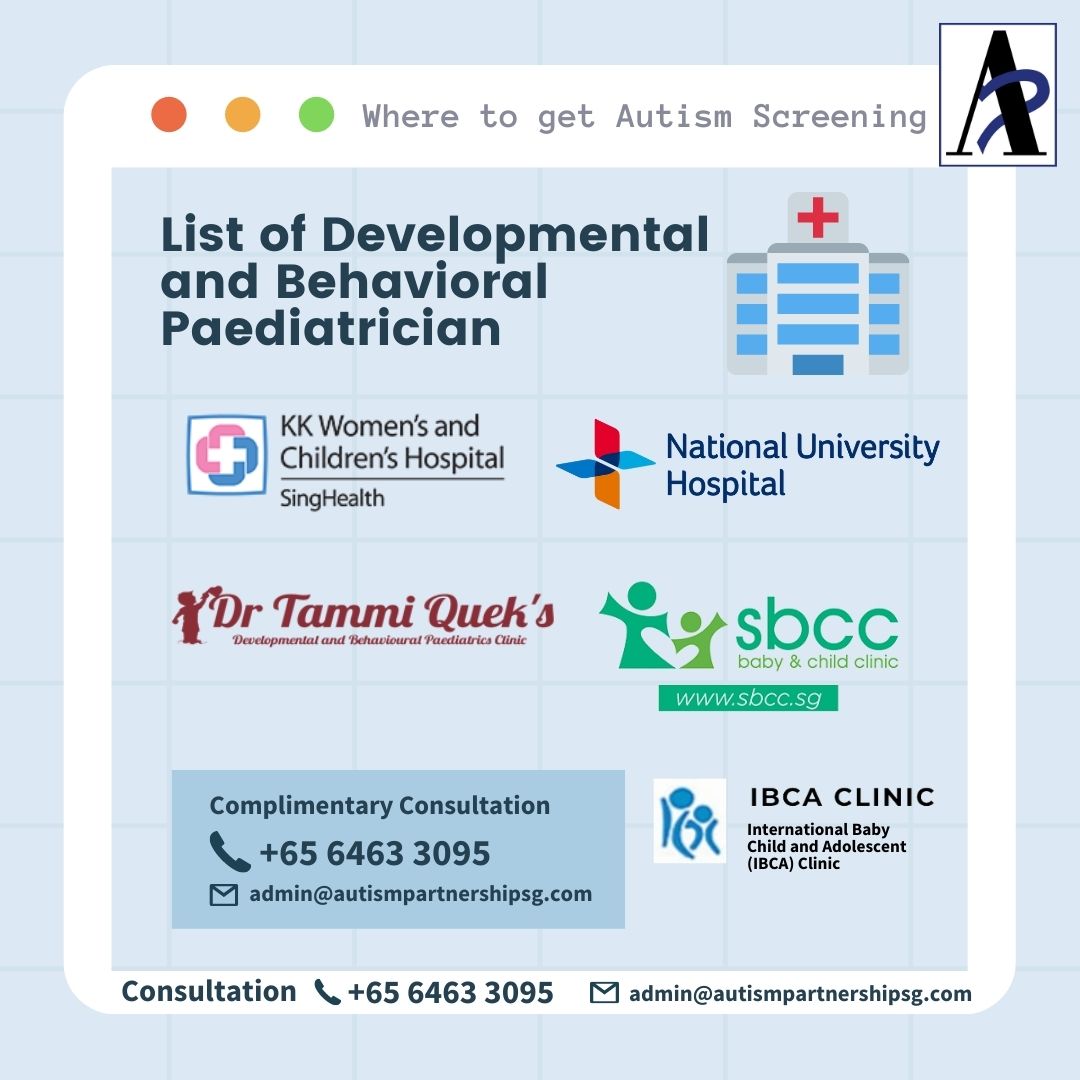
Developmental & Behavioral Pediatricians in Singapore:
Next Steps: After Diagnosis - ASD Treatment Singapore
Many treatment options can help to improve outcomes for children. In a field exploding with alternative treatments, choosing the best course of action for the child with autism can be a daunting task. Following Singapore’s AMS-MOH Clinical Practice Guideline 1/2010, one of the most scientifically proven treatment methods for autism is Applied Behavior Analysis (ABA). Awarded Grade A in terms of Level of Recommendation and Level 1++ in terms of Level of Evidence. ABA is the highest-rated treatment method by the Singapore Ministry of Health (MOH).
Early Intensive Behaviour Intervention (EIBI)
Early Intensive Behaviour Intervention (EIBI) represents a specific approach within the broader case of ‘applied behaviour analysis’ (ABA) interventions. ABA is often used synonymously with EIBI. The original home programme with interventionists of typically lasted at least 2 years and involved about 40 hours of weekly intervention.207 Recent systematic reviews showed that EIBI was efficacious but had variable outcomes, suggesting that EIBI was not effective for all children with ASD.208, 209 No studies replicated the magnitude of efficacy reported by Lovaas (i.e. significant gains on intelligence tests and claims of ‘recovery’, as defined by a placement in mainstream schools without assistance). 173
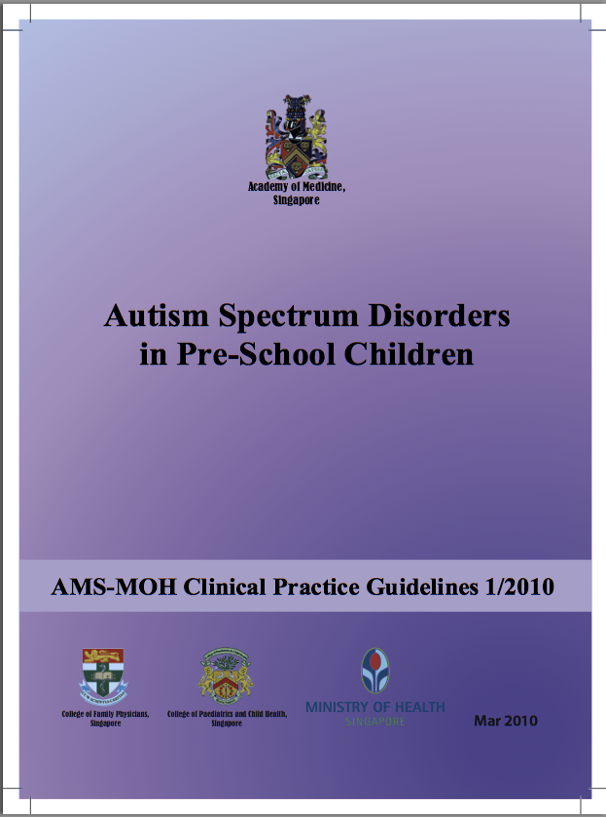
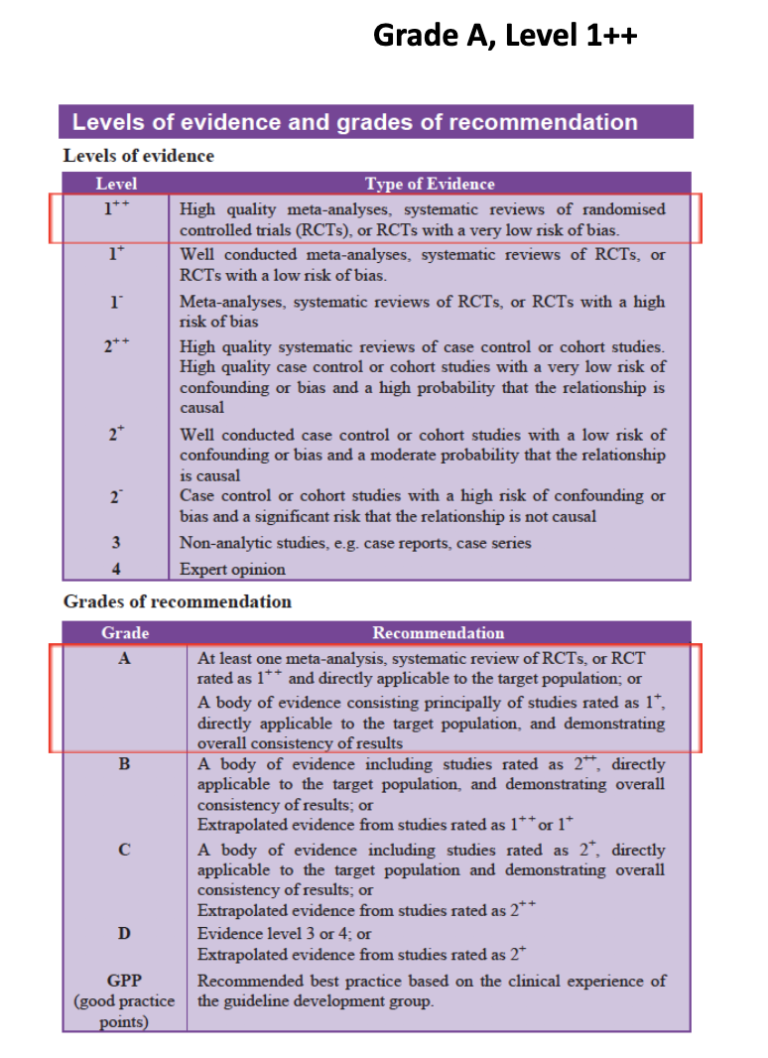
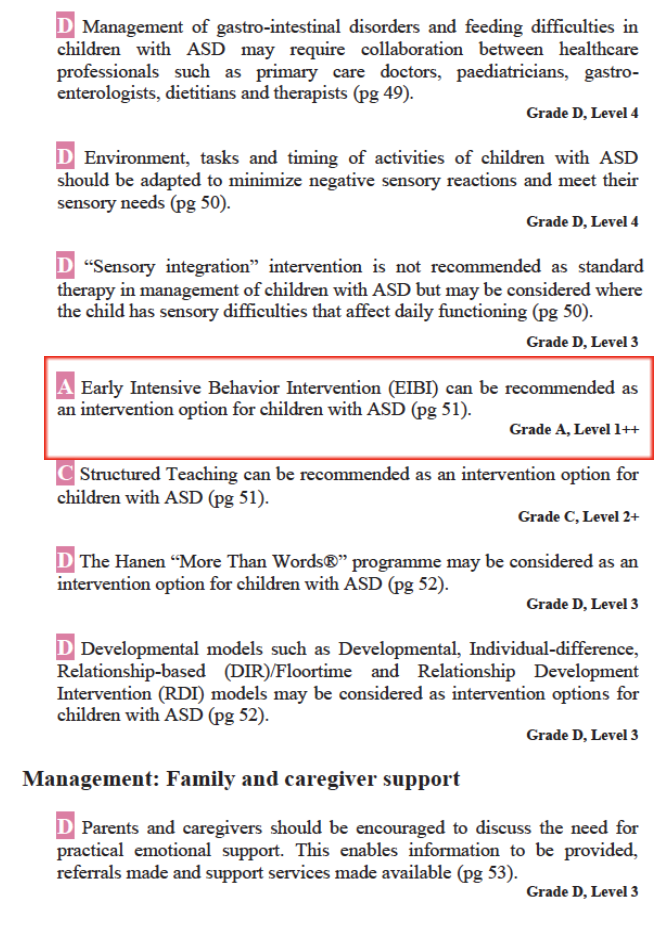
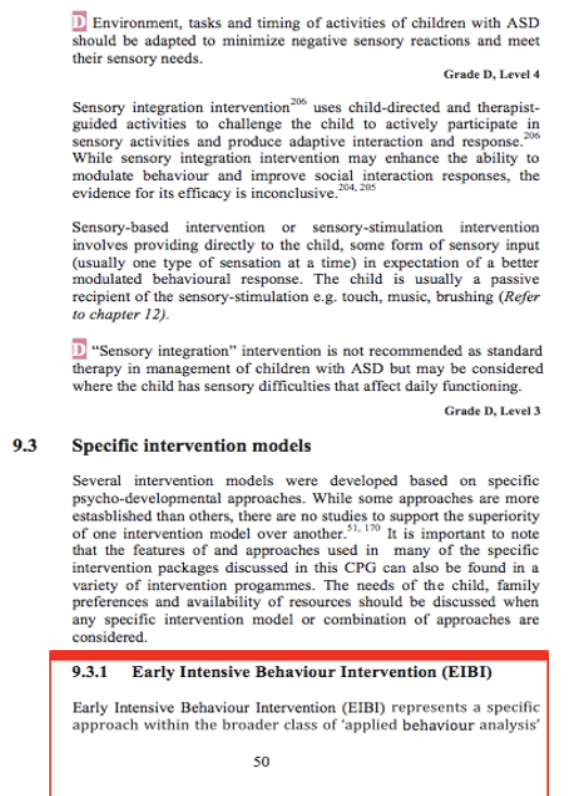
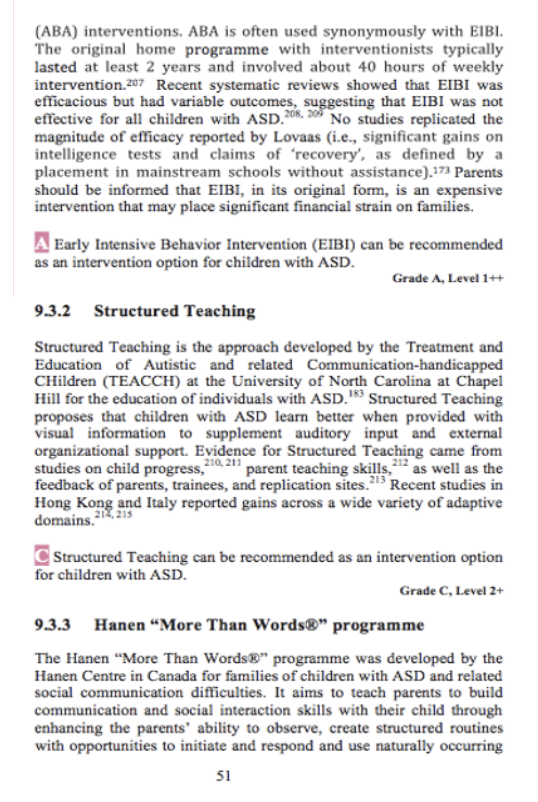
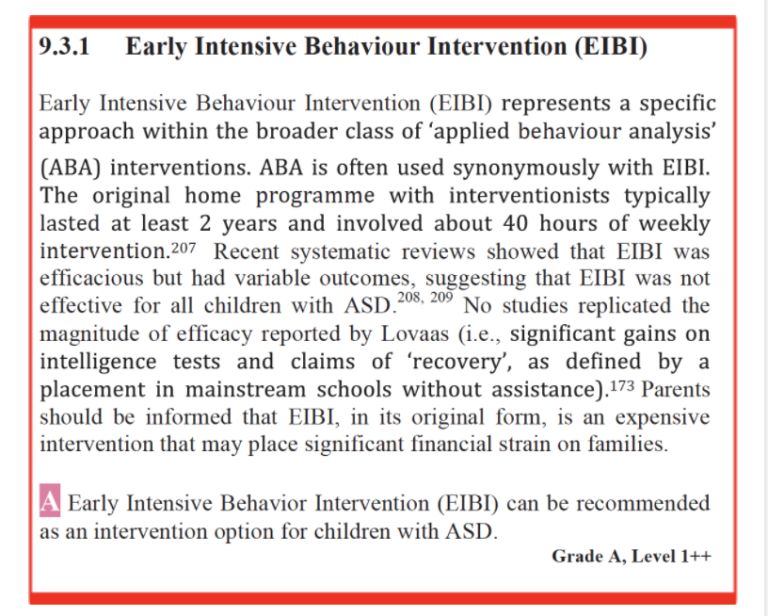
Grade A, Level 1++ – Early Intensive Intervention (EIBI) can be recommended as an intervention option for children with ASD.”
Critical Questions To Ask When Seeking Autism Treatment Options
- What is the treatment program’s rationale and purpose?
- Is there written information?
- What is involved for the child and family?
- What is the length of treatment, frequency of sessions, time and costs to the family?
- Does the treatment focus on one skill or is it a comprehensive program?
- Will the treatment result in harm to the child?
- Is the treatment developmentally appropriate?
- What is the background and training experience of the staff?
- Does the treatment staff allow input from the family?
- Are assessment procedures specified and is the program individualized for each child?
- How will progress be measured?
- How often will effectiveness of the intervention be evaluated?
- Who will conduct the evaluation?
- What criteria will be used to determine if treatment should be continued or abandoned?
- What scientific evidence supports the effectiveness of the program?
- How will failure of treatment affect the child and family?
- How will treatment be integrated into the child’s current program?
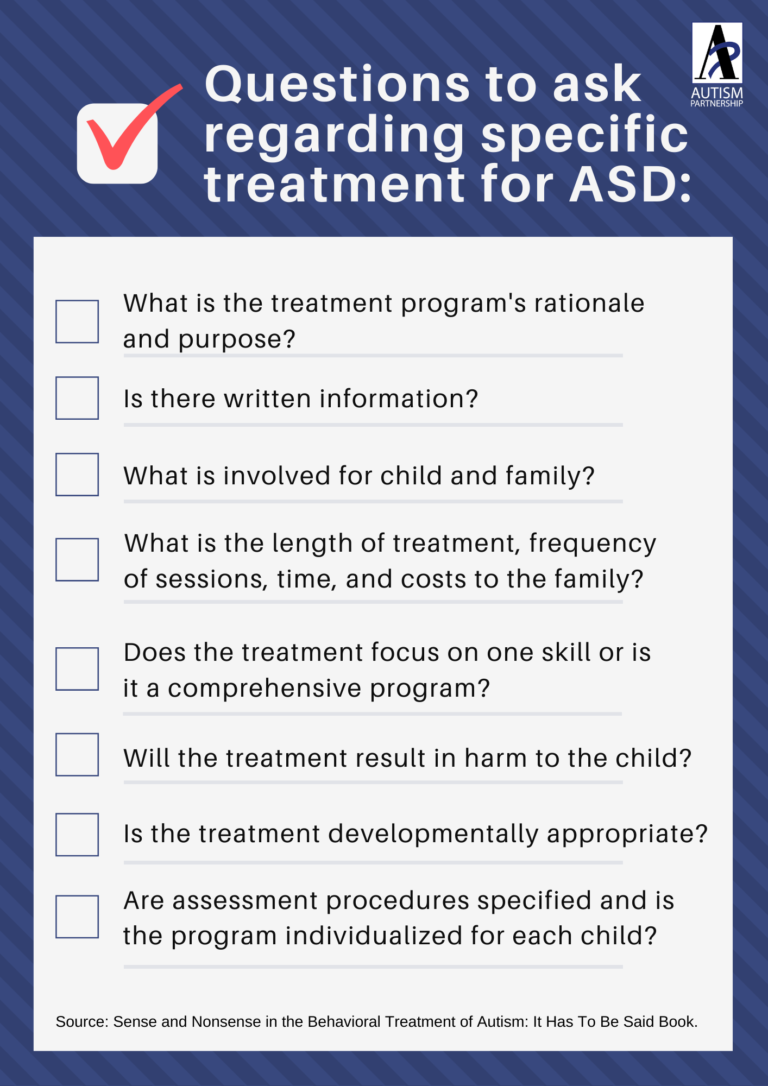
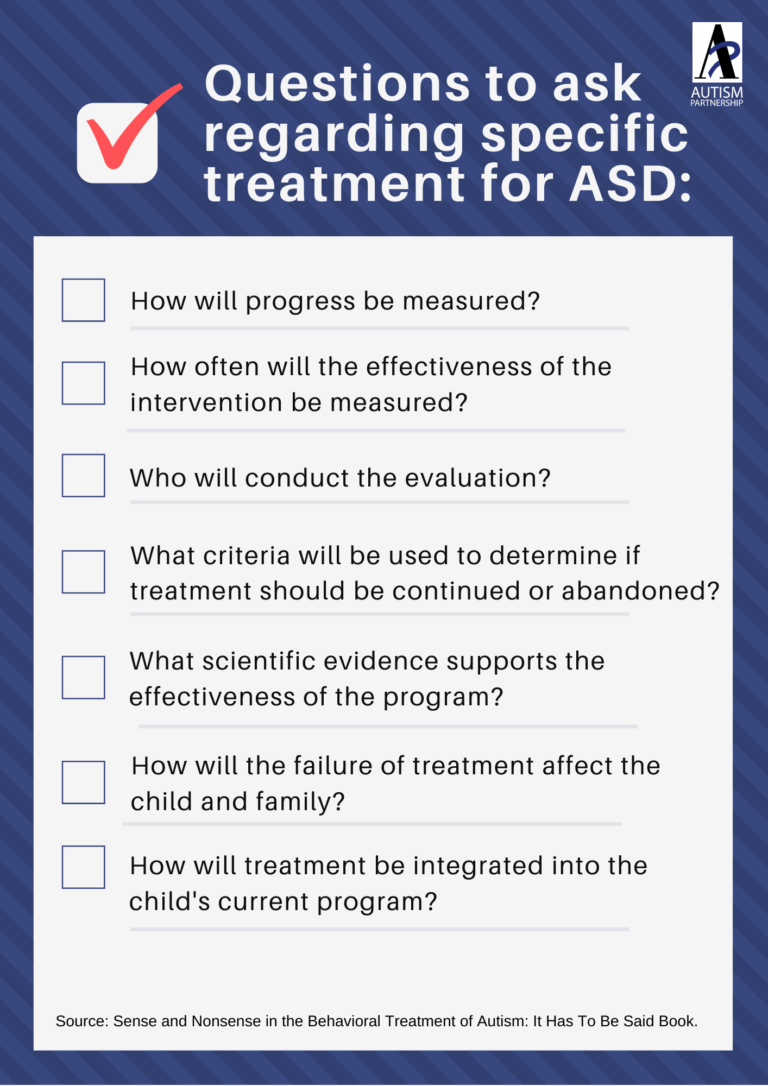
Autism Resources for ASD Parents
Parent Training & Education
Autism Resources: Parent Training & Education Online ABA Skills Training Hands-On ABA Training Program ABA Articles ABA Books & Teaching Materials ABA Training Videos &
Resources
our autism resource centre ABOUT AUTISM SPECTRUM DISORDER (ASD) Frequently Asked Questions (FAQ) on Autism (ASD) Read more detailed analysis: Our students’ progress Case Study:
Helpful Links for ASD Parents in Singapore:
Screening & Diagnosis
Insurance Related Information
Please check with your insurance provider on policy coverage.

